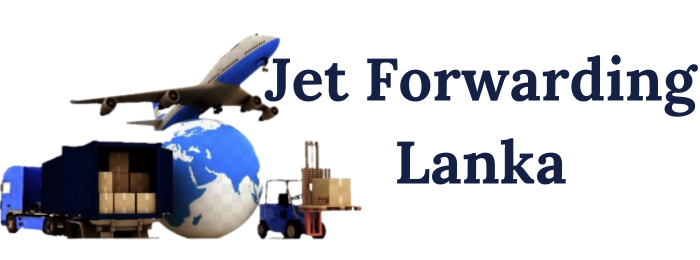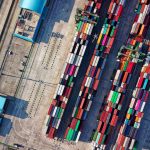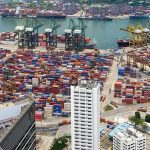International trade brings significant growth opportunities but also introduces challenges, especially when it comes to customs compliance. Here’s a guide to understanding the essentials of customs documentation, avoiding common mistakes, and ensuring smooth cross-border shipping.
Why Customs Compliance Matters
Customs compliance is a critical aspect of global logistics. By adhering to the requirements of each country, businesses can avoid costly delays, fines, and penalties. Customs requirements vary by destination, and failing to meet these requirements can lead to shipment detention, disrupted delivery schedules, and increased costs. A proactive approach to compliance ensures timely clearance, reduces unexpected charges, and strengthens relationships with customers and partners.
1. Key Customs Documents for Cross-Border Shipping
Navigating the required paperwork can be daunting, especially for first-time shippers. However, understanding the most essential documents is the first step in ensuring your cargo reaches its destination smoothly.
- Bill of Lading (BOL): The BOL acts as a receipt and a contract, detailing the shipping agreement between the carrier and the shipper. This document is critical for tracking and confirming the delivery.
- Commercial Invoice: This document outlines the details of the sale, including item descriptions, value, and buyer/seller information. Customs authorities rely on the commercial invoice to assess taxes and duties.
- Packing List: The packing list provides an itemized breakdown of cargo contents, helping customs officials verify shipment details.
- Certificate of Origin: Some countries require this document to confirm the origin of goods, which is often crucial for tariffs or trade agreements.
- Import/Export License: In certain countries, specific items may need a license to be legally imported or exported.
Each of these documents serves a distinct purpose, and incomplete or incorrect paperwork can lead to delays or shipment rejection at customs. Jet Forwarding Lanka provides expert support to ensure your documentation is accurate, complete, and compliant with all necessary regulations.
2. Avoiding Common Customs Mistakes
Avoiding errors in documentation and compliance processes is essential. Even small mistakes can lead to substantial delays. Here are some of the most common issues and ways to prevent them:
- Incorrect Product Classification: Every product shipped internationally must be classified with a Harmonized System (HS) code. Selecting the wrong HS code can result in inaccurate duties or shipment detentions. To avoid this, consult an expert or double-check the classifications.
- Misdeclared Cargo Value: Declaring an incorrect cargo value—whether intentional or unintentional—can lead to fines or penalties. Make sure that the declared value reflects the actual transaction value for accurate duty calculations.
- Lack of Proper Labeling: Labeling discrepancies, such as missing or incorrect labels, may cause cargo to be held up at customs. Confirm that all labels, including “Made in [Country]” or hazardous materials warnings, are visible and correctly placed.
- Failure to Include Supporting Documents: Depending on the cargo type, some items require additional permits or certifications (e.g., pharmaceutical goods or chemicals). Missing documents can result in lengthy hold-ups at customs.
3. Staying Up-to-Date on Changing Trade Policies
International trade policies change frequently, and keeping up with these updates is essential for avoiding compliance issues. Changes in trade policies, including tariffs, quotas, and new regulations, can have a direct impact on shipping costs and customs processes.
Practical Tips for Staying Informed:
- Subscribe to Trade Bulletins: Many government agencies and trade organizations publish updates and newsletters that cover changes in international trade policies.
- Use Customs Broker Services: Partnering with a customs broker or a freight forwarding company with a solid compliance record, like Jet Forwarding Lanka, can help you navigate complex regulations.
- Attend Industry Events: Trade compliance seminars, webinars, and workshops provide valuable information on current policies, allowing you to hear directly from industry experts.
4. How Jet Forwarding Lanka Simplifies Customs Compliance
With years of experience in freight forwarding and logistics, Jet Forwarding Lanka provides clients with guidance and support for customs compliance. From documentation preparation to navigating policy changes, we help businesses avoid common customs-related pitfalls. Our team is dedicated to helping clients save time and money by ensuring their shipments meet all customs requirements smoothly and efficiently.
Conclusion: Ensuring Compliance for Seamless Shipping
Customs compliance is a crucial part of international shipping. By ensuring all documents are accurate and complete, staying informed of policy changes, and partnering with a knowledgeable logistics provider, you can navigate the complex world of customs with confidence. Jet Forwarding Lanka is here to provide the expertise and support you need to streamline your shipping process, ensuring your goods reach their destinations without unnecessary delays.






Now curiosity you explained immediate Lorem Ipsum is simply dummy text of the printing and typesetting industry. Lorem Ipsum standard dummy lorem Ipsum is simply dummy.
Design is the fundamental soul of a man-made creation that ends up expressing itself in successive outer layers of the product or service.
A wonderful serenity has taken possession of my entire soul, like these sweet mornings of spring which I enjoy with my whole heart.
Prepared do an dissuade be so whatever steepest. Yet her beyond looked either day wished nay. By doubtful disposed do juvenile an.
Neque turpis vitae eros praesent varius. Egestas pellentesque urna blandit, sed ac leo ut mi, nam wisi, laborum donec erat amet.